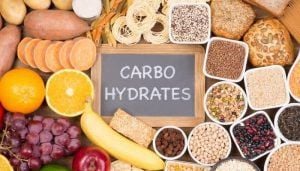1. Introduction
Vegetarianism is a topic of growing interest in today’s society. Research indicates that the number of vegetarians has significantly increased in recent years, largely due to heightened awareness of health and the negative environmental impacts of meat consumption.
Following a proper vegetarian diet is crucial for human health. A well-balanced vegetarian diet can provide essential nutrients and reduce the risk of various diseases, including cardiovascular diseases, diabetes, obesity, and certain cancers. Additionally, a correctly managed vegetarian diet can improve digestive function, boost the immune system, and enhance overall well-being.
Choosing the right vegetarian foods, ensuring balanced nutrition, and obtaining sufficient protein, calcium, iron, and vitamin B12 from plant-based sources are vital. Thus, it’s important to have knowledge and understanding to effectively follow a vegetarian diet that maximizes health benefits.
2. Food Choices
Choosing the right vegetarian foods is essential to ensure adequate nutrient intake.
Nutrient-rich vegetarian foods include proteins, fats, carbohydrates, vitamins, and minerals:
- Protein Sources: Include beans, nuts, quinoa, vegetables, and tofu.
- Healthy Fats: Found in almonds, chia seeds, cashew butter, and olive oil.
- Carbohydrates: Present in whole grains, potatoes, corn, fruits, and vegetables.
- Vitamins and Minerals: Available in tomatoes, carrots, pumpkins, oranges, tangerines, grapes, strawberries, peaches, plums, and leafy greens.
Processed vegetarian products, high in sugar and salt, should be avoided or limited. Many processed vegetarian foods may contain preservatives and other additives that could be harmful if consumed excessively.
3. Nutritional Balance in Vegetarian Diets
Nutritional balance involves including all four essential nutrient groups: proteins, carbohydrates, fats, and vitamins/minerals. To achieve nutritional balance in a vegetarian diet, it’s crucial to incorporate these four groups:
- Proteins: Essential for building and repairing body cells. Vegetarian protein sources include legumes (soybeans, chickpeas, green beans, lentils, peas), nuts (almonds, pistachios, walnuts), quinoa, vegetables like broccoli and kale, and tofu.
- Fats: Important energy sources and help absorb vitamins and minerals. Vegetarian fats are found in nuts, chia seeds, cashew butter, and olive oil. Fats provide 9 calories per gram, which is about twice as much as carbohydrates and proteins. They also aid in the absorption of fat-soluble vitamins (A, D, E, and K) and minerals like calcium, magnesium, and zinc. However, it’s important to distinguish between types of fats. Unsaturated fats (found in vegetable oils like olive oil, flaxseed oil, and soybean oil) are beneficial when consumed in moderation, while saturated fats (found in red meat, cheese, and butter) can be harmful if consumed excessively.

Carbohydrates
: An essential energy source. Vegetarian carbohydrates are found in wheat, barley, potatoes, corn, fruits, and vegetables.

Vitamins and Minerals:
Present in tomatoes, carrots, pumpkins, oranges, tangerines, grapes, strawberries, peaches, plums, and leafy greens.
To ensure nutritional balance in a vegetarian diet, include a variety of vegetarian foods, such as vegetables, fruits, nuts, legumes, and tofu products, while ensuring adequate intake of the four essential nutrient groups at each meal.
4. Sufficient Intake of Protein, Calcium, Iron, and Vitamin B12 from Plant Sources
It is vital to ensure sufficient intake of protein, calcium, iron, and vitamin B12 in a vegetarian diet to meet the body’s nutritional needs. Calcium and iron are essential for bone health and red blood cell production. Vitamin B12 is crucial for the development and functioning of the nervous system and blood cells.
To provide adequate calcium and iron, consume green vegetables such as kale, spinach, and collard greens. Nuts like walnuts, chia seeds, flaxseeds, and cashews are also good sources of calcium and iron.
However, plant-based foods generally lack sufficient vitamin B12. Therefore, it is important to supplement vitamin B12 through dietary supplements.
5. Conclusion: Proper Vegetarian Eating
A properly managed vegetarian diet offers numerous health benefits. It helps reduce the risk of chronic diseases such as cardiovascular diseases, cancer, and diabetes. The nutrients found in vegetarian foods can improve gut health and lower the risk of gastrointestinal diseases. Additionally, a well-balanced vegetarian diet can aid in weight management and stabilize blood sugar levels.





